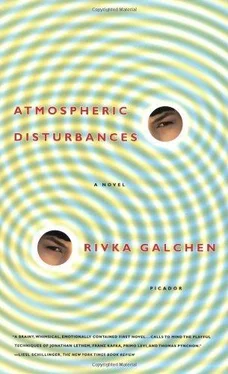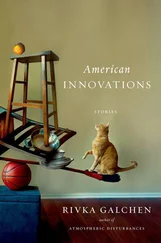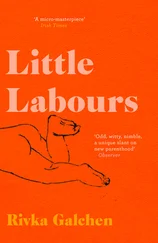If the dog was essential, but following me had proved more essential than staying behind with the dog, then didn’t that mean I was more essential than the dog? And if I was deploying a meticulous methodology of being open to chance, while it was chance itself that the Fathers were working to control, then wasn’t it me they were trying to control? The simulacrum had pursued me. As had Magda. Even Harvey had tracked me down.
I set down my razor.
It’s a strangely impersonal feeling, to feel wanted for reasons one doesn’t understand.
Half shaved, half convinced, I turned and said to Harvey, “I think the battle might not be being waged through the dog. It might be that it’s being waged through me. I thought I was following the caprice of my own heart, but now I think maybe my movements might really be determined by some other force. Maybe the determination of the weather patterns is beginning — is getting its foothold into this world — through the determination of the patterns of me. I mean, maybe my movements really matter. Matter to a lot more people than just me. Maybe I’m the proverbial butterfly.”
“Everyone’s a butterfly, Dr. Leo,” Harvey said, not even turning from the television set.
“I know, I know. But I’m saying — I think I might be the central butterfly. I don’t mean to be grandiose; I mean I hope it’s not true. But I just have a feeling.”
“Well,” Harvey said, now turning to me, “when I’m in a situation like that — as I think you know — I try to seek some corroboration, try to verify some hunches. Keeps me out of embarrassing situations, you know?”
Well there were all kinds of corroboration. “I think I should go try to find that woman who sought me out this morning. I need to understand her motivations better, even if she won’t straightforwardly tell me what they are. Do you mind if I leave you again?”
“Do you mind if I order some room service? Go, go, but when can I expect your return?”
Well: it was a small town, that corner of the Argentine unconscious, and by evening I’d managed to refind Rema’s mother.
9. The sensitivity of the solution to uncertainties
After I made a false promise to call the doppelganger after dinner, Magda conceded to sharing another meal with me. As soon as we sat down I began to explain that I of course understood that she was under the impression that there was something wrong with me, and I explained that I thought that was entirely understandable. I told her that if I didn’t know what I knew, and if I didn’t feel what I’d felt, then I too most likely would have thought there was something wrong with me. But maybe she felt, as I felt, that she knew things that I didn’t know, and that if I came to know those things then I might see the world differently, as she did. If she wanted to, she could tell me those things that I didn’t know; she could rest assured that I would handle well the coming to know of them.
The skin around her eyes: gray and recessed. She said nothing, just looked askance. Then sighed.
So I tried a different tack. “The landscape here is so astounding. What a beautiful country,” I said.
“It’s a broken, depressed country,” she responded.
“Everyone seems so nice,” I said.
She said how insincere everyone was. How it was all just appearances. “Even me,” she said. “I’m only nice on the surface.”
If she wanted to indulge in that common grandiose fantasy of not being a nice person, then that was okay with me. “You know more than I do.”
“Yes,” she said, “I do know more than you do.”
“Yes you do,” I agreed, realizing that she most likely hated me, at least for that moment while I had her attention. So I truly had nothing to lose with her, I could only gain. “So the man Rema left Argentina with? Her husband? Was his name, well, by any chance, well — what was his name?”
“I thought you were his friend?” she said, looking suddenly energized and disturbed, as if a bright light from an unidentified source had been shined on her through a window. “That was a lie also?”
“I’ve just been so confused lately,” I said. “It has spilled, or I mean slipped, my mind. That means I have forgotten. I mean, well, was it — was his name — was it Anatole?” My plan was then to ask if she could recall Anatole ever asking after me, or after someone like me.
“Anatole?” she said back to me, pronouncing it differently, making four syllables of it, when I had been saying it over and over and over in my mind with only three. “Is that what you said?” she asked me, as if I’d let a genie — evil or benevolent I could not tell — out of a bottle.
“Yes?” I said. “I’m sorry I lied earlier. You’re right. I don’t know why I said I knew him. There was so much I didn’t know when I met you. I think you can understand. I mean: you’re an analyst. I mean: I was in a rather awkward position.”
“When Rema tells me that you are now her husband, is she lying to me?”
I shook a little bit of salt onto the empty plate in front of me; I thumbed some grains into my mouth; I didn’t want to give information, I wanted only to take. “You mean the woman I shared a bedroom with in your house? Well kind of, well yes, in the strictest interpretation, she is lying. But from a slightly alternate perspective she is not lying. I am Rema’s husband. I am.”
“But you don’t know who Anatole is?”
I tried to picture an Anatole. He looked like me, but me as refracted in an ugly-making funhouse mirror; and then somehow that wavy Anatole took my place, and I had become the distorted him, and this revealed my original position to me as an intensely enviable one. “But you do know him?” I asked.
“Your marriage — if really it is a marriage — it’s very strange. Cold.”
I thought of windchill, as a kind of misdirected rebuttal. Magda went on about just what she thought my marriage was like. She talked on and on, and so confidently, and in such an ugly manner, until finally I interrupted:
“Aren’t you extrapolating a bit too much, a bit too confidently, just from the single fact that I don’t know precisely who Anatole—”
“I don’t blame you,” she said, which led me to understand that she clearly did blame me. “She is a strange girl, my daughter. Maybe that is my fault.”
Then I was quiet as was she; I hoped she didn’t read my silence as judgment. I broke a bite off a crackery breadstick; it cleaved along unexpected planes. As I listened to myself chew, I began to feel distant from myself, and, in that way, clearheaded. “So,” I said, partly to Magda, partly to myself, “Rema left Argentina with this An-a-to-le person.” I adopted the four-syllable pronunciation with confidence, feeling myself an Hercule Poirot: it was near the end of the story, the suspects were in the room. “I had thought he was the night nurse,” I said as an engorging vein imaged in my mind. “But I am relieved to know that he is not the night nurse—”
“You think Anatole is a nurse?”
“No, no. I don’t. Not anymore. I was wrong before,” I said as I felt my investigation growing crystalline.
“Anatole was not Rema’s husband,” Magda said.
“Ah so,” I said, gracefully turning on that dime. “Actually I suspected as much. They were only engaged then, am I right? It ended when they arrived in the States. Then the love just faded.” I felt on a proverbial roll. “They realized it had been a matter of context, of setting. And though they were still fond of each other, it just wasn’t enough for marriage. It was awkward in bed perhaps, pardon my French, and awkward at meals, he wouldn’t eat lentils with her, and he couldn’t handle arguing with her, and he never knew what to say, and he bought her the wrong gifts, things that revealed he could never really know her—”
Читать дальше
Конец ознакомительного отрывка
Купить книгу












